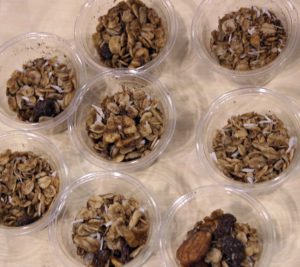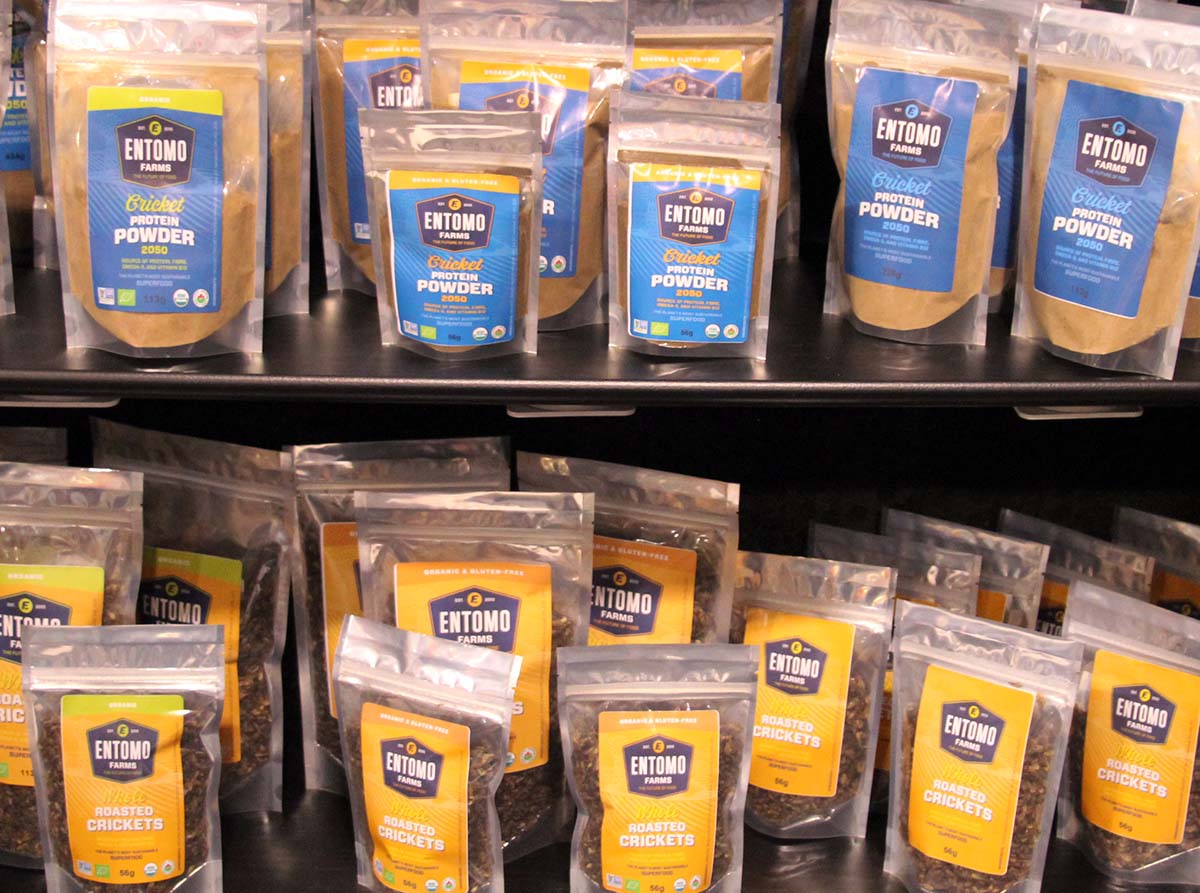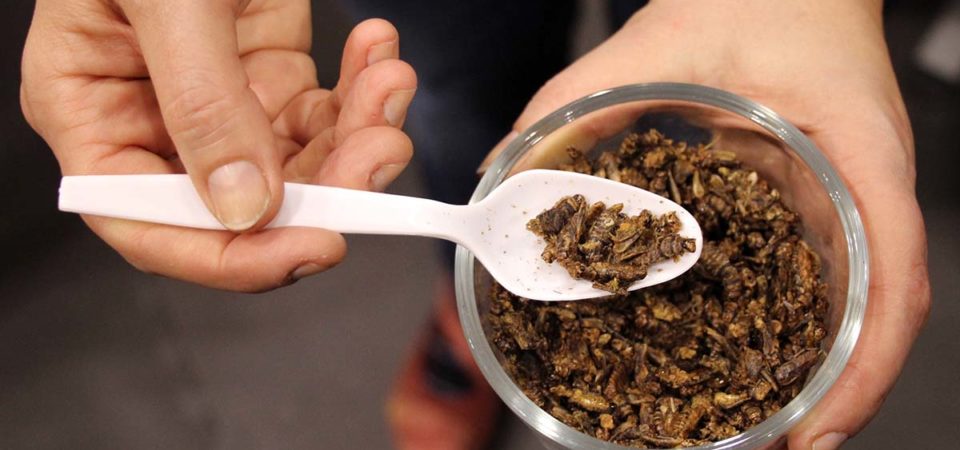Grasshoppers, termites, locusts, weevils, and caterpillars. They can cause problems for crops. They can also support food sustainability as sources of protein, vitamins, and minerals.
Eating local insects can be an environmentally friendly, easy, cheap way of improving nutrition for everyone. Insects can also be farmed locally, year-round, and organically. Insect farms generate fulfilling jobs, cut down on the fuel cost of food transportation, and save land, water, waste, and energy compared to farming other animals.

Cooked insects can be used whole. They substitute for croutons in salads or, useful for people with allergies, nuts in baked goods.
Would everyone eat insects? For those who scuttle back at the thought of crunching fried larvae or picking wings off roasted critters, new products are on the market.
Grow ’em, roast ’em, grind ’em: insect powder is available. Think of it as gluten-free protein-rich flour.

Recipes abound using insect flour for muffins, granola, cereal, snack bars, and rolls. Concoctions include Chocolate Espresso Banana Bread with Cricket Flours and Sunrise Smoothie with Mealworm Powder.
As always, cautions are warranted because few approaches are a panacea. Little is known about possible allergic reactions. The industry is not well-regulated. Could mass production and consumption lead to harmful effects? Insects in the wild can be toxic or accumulate pesticides.
We might not fly immediately to the six-legged chef. We should consider how insects can contribute to sustainable food and nutrition.
Ilan Kelman is a Reader in Risk, Resilience and Global Health at University College London. You can follow him on Twitter @IlanKelman.
MAHB-UTS Blogs are a joint venture between the University of Technology Sydney and the Millennium Alliance for Humanity and the Biosphere. Questions should be directed to joan@mahbonline.org.
MAHB Blog: https://mahb.stanford.edu/blog/grubby-grub/
The views and opinions expressed through the MAHB Website are those of the contributing authors and do not necessarily reflect an official position of the MAHB. The MAHB aims to share a range of perspectives and welcomes the discussions that they prompt.
